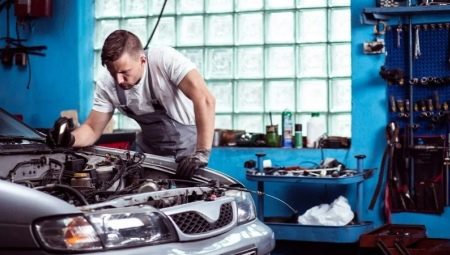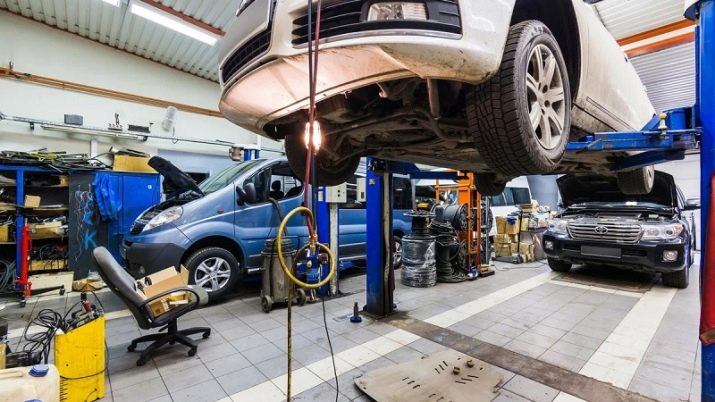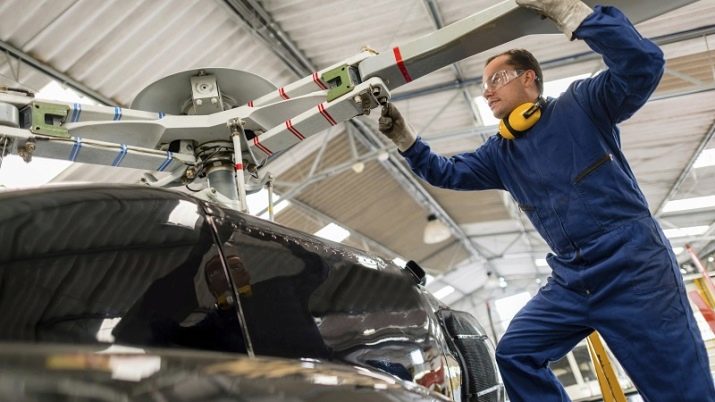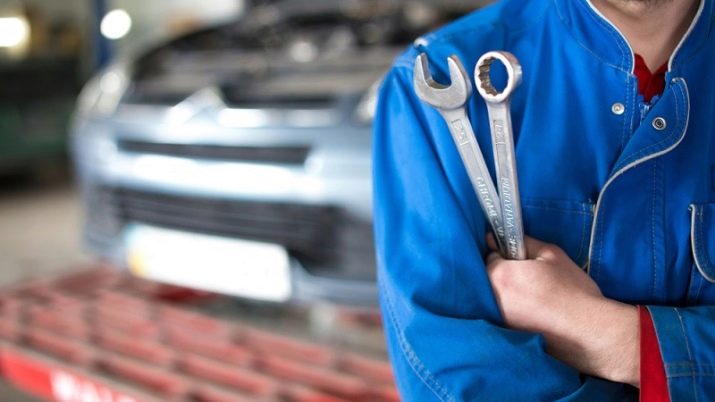Who is a mechanic and what does he do?

Due to the high popularity and widespread distribution of blue-collar occupations, an increasing number of educational institutions are training specialists in this field. So, one of the most popular positions is the work of a mechanic. In this article, we will talk in more detail about the features, advantages and disadvantages of this profession.
Peculiarities
A mechanic is a specialist who performs tasks associated with a variety of mechanical systems. If we turn to the history of the emergence of the profession, then we can note the fact that for the first time it arose during the existence of Ancient Rome. At that time, this category of workers was put on a par with artisans, and mechanics itself was not considered an independent branch of science. Since then, the specialty has been constantly developing and improving.
If we study the modern description of the profession, then we can conclude that it belongs to the category of workers (according to the classifier), since it requires a person to apply not only mental, but also physical abilities.
Thus, due to the increased requirements on the part of the employer, only the person who has the appropriate professional training (both theoretical and practical) can work as a mechanic at the enterprise.

At the same time, the profession of a mechanic, like any other specialty, has a number of unique characteristics that are inherent only in this type of activity. It should be said right away that they are both positive and negative.Thus, before finally deciding whether you are ready to associate your life with the work of a mechanic, you need to carefully study and evaluate all the pros and cons, so as not to regret your choice in the future.
Among the advantages of the profession, the following is traditionally distinguished.
- Relevance and relevance in the personnel market. Mechanics are professionals who are in demand in all industries.
- Big salary. The salary of a mechanic is above the national average.
- Availability of benefits. Often, specialists work in difficult climatic conditions (for example, in the northern regions) and receive benefits for this.
On the other hand, one should not forget about the presence of some shortcomings.
- High level of responsibility. This kind of work comes with a lot of stress.
- Irregular working hours. Despite the fact that most employers set clear work schedules, mechanics often have to work after hours.
- High level of risk. In the course of performing his professional duties, a mechanic may sustain work-related injuries.
- Constant interaction with working mechanisms and the impact on the specialist of such harmful factors as noise and vibration, etc.

Views
Mechanic is not a homogeneous or uniform profession. There are several specializations within this position. So, it is customary to distinguish the following types of mechanics:
- electromechanic (the work of this specialist is directly related to the interaction with electrical engineering);
- auto mechanic (for example, a convoy mechanic or other transport specialist);
- aviation mechanic;
- mechanic;
- adjuster;
- power engineer;
- linear mechanic;
- sewing equipment mechanic, etc.
Thus, depending on your personal interests and preferences, you can choose the area of activity that is most interesting for you.

Responsibilities
Before applying for a job as a mechanic, you should definitely familiarize yourself with the official documents, which contain the rules and principles governing the work of a professional. These documents include job descriptions, professional standards, ETKS, etc. They contain qualification requirements that are put forward to a specialist. After reading them, you can understand what an ordinary or senior mechanic does, what institute you need to graduate from and what specialty to get.
The main duties of a mechanic include:
- monitoring the correct operation of mechanisms and devices;
- repair work, elimination of defects;
- study of the causes of malfunctions;
- leadership tasks (for senior mechanics);
- documentation management (both accounting and reporting);
- use of advanced world experience in the course of their work;
- compliance with safety regulations and internal regulations.
It should be borne in mind that, depending on the specifics of the work of a particular enterprise, as well as on the wishes and needs of a particular employer, the list of duties can be changed, supplemented and corrected. Accordingly, you must always be prepared to adapt to changing environmental conditions. You also need to remember the fact that for non-fulfillment or improper fulfillment of his duties, the mechanic will be held liable (up to criminal).

Knowledge and skills
In order for a specialist to effectively and efficiently perform his work tasks, he must possess a certain set of skills, knowledge and skills. The main ones include:
- knowledge of regulatory legal acts that regulate the activities of a specialist;
- understanding the principles and standards of safety;
- knowledge of the labor code;
- the ability to plan work (both your own and your subordinates);
- knowledge of various methods of repair, installation and adjustment of equipment;
- skill in working with equipment, etc.
At the same time, in no case should you be limited to the list of knowledge and skills that are described above. Be sure to strive to develop and improve yourself. In this case, you will be able to favorably stand out against the background of all other job seekers for the position.

Education
In order to take the position of a mechanic, you need to get an appropriate education. At the same time, depending on the requirements of the employer, the characteristics of a particular enterprise and your personal ambitions, education can be obtained both in a secondary specialized vocational educational institution (for example, a technical school or college) and at a university (university, institute, academy).
At the same time, it is very important to have a balanced approach to the choice of a specific educational institution: you should choose those organizations that are respected among the professional community. TAlso choose the specific faculty and department carefully. Before starting the official admission process, you need to visit the admissions office of the educational institution and find out what subjects you need to take.
In the process of getting an education, you need to be as careful as possible. You need to direct your efforts not only to obtain the necessary theoretical knowledge, but also to develop practical skills. It should be borne in mind that this specialization is applied, therefore students learn a large number of complex technical subjects (for example, mathematical modeling). In addition, it is important to pay close attention to internships and internships, thanks to which you will acquire the practical skills necessary for future professional activities.
After receiving a basic education, you should not be satisfied with what has already been achieved. So, in order to become a relevant and in-demand specialist, you need to regularly undergo advanced training through courses, trainings, lectures, seminars, etc.

Where does it work?
As mentioned above, mechanics are in demand in almost all spheres of human activity, namely:
- industrial production;
- enterprises specializing in the repair and maintenance of various types of equipment;
- car garages;
- factories and factories, etc.
How much does he earn?
The salary of a professional mechanic depends on several factors:
- region of residence (a resident of the capital receives more per month than those who live in remote regions);
- work experience (the more work experience, the higher the salary);
- the level of education of a specialist (university graduates receive more than those employees who graduated from secondary vocational educational institutions);
- position (mechanics in managerial positions receive higher material remuneration than ordinary specialists);
- enterprise specialization, etc.
If we talk about average indicators, the salary of a mechanic in Russia is about 50 thousand rubles.








